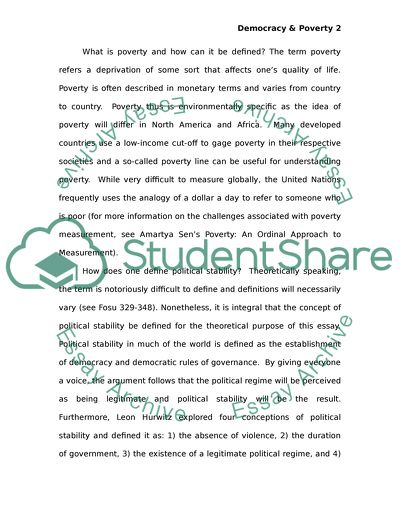Cite this document
(“Does democracy help or hinder development Essay”, n.d.)
Retrieved de https://studentshare.org/miscellaneous/1553669-does-democracy-help-or-hinder-development
Retrieved de https://studentshare.org/miscellaneous/1553669-does-democracy-help-or-hinder-development
(Does Democracy Help or Hinder Development Essay)
https://studentshare.org/miscellaneous/1553669-does-democracy-help-or-hinder-development.
https://studentshare.org/miscellaneous/1553669-does-democracy-help-or-hinder-development.
“Does Democracy Help or Hinder Development Essay”, n.d. https://studentshare.org/miscellaneous/1553669-does-democracy-help-or-hinder-development.


